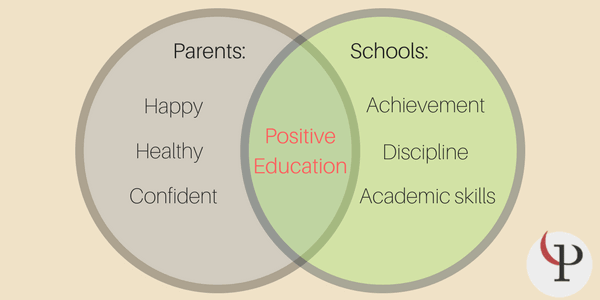When a parent is happy despite their child being miserable, that parent no longer adds to the burden of guilt that the child is feeling. The child can no longer drag the parent down and so can no longer reap the evidence for guilt (a negative belief) that doing so brings. You have a right to be happy! Dress up and be superheroes together. Have a tea party or a dance off. The sillier the better. Happy children laugh frequently. Teach them compassion. Compassion is two-fold: compassion for self and compassion for others. Many children receive the message from their parents, “I love you when you are good” or “I love you as long as you.
- Parent Informationteach To Be Happy Meme
- Parent Informationteach To Be Happy Wishes
- Parent Informationteach To Be Happy Birthday
- Parent Informationteach To Be Happy Birthday Wishes

Scientific facts about happiness
Here are a few facts about how to feel happier. And about whether we use this ability. Discoveries of scientists will help to better understand how to manage their emotions, live easily and joyfully.
Fact number 1. We do not use 40% of our resources
Sonya Lubomirski, an American professor of psychology from the University of California, in the course of research on the human psyche, found that up to 40% of emotions that cause happiness do not occur. But he can very well change the situation by working on himself.
According to Lubomirski, for the happiness you need to learn to be grateful to people who are doing something for us. In addition, happy people do not compare themselves with the more fortunate, do not envy and rejoice at the fact that they are just such, unique, special. Lubomirski also writes that for the feeling of happiness, one can apply the state of 'flow'. It means to completely immerse yourself in the work that you are doing, and then time will fly by unnoticed. 'Happy hours are not watched' - it is said about this.
A positive reaction to any events is another emotion that brings a person closer to a state of happiness. Experiments show that one and the same situation can make some people happy and still be unhappy to leave others behind. This is due to the different reactions of people to the same circumstances. Happy people are happy with what they have, and they are given even more. Unhappy people are never satisfied with themselves and circumstances. That's all a simple secret that can be explained to a child.
Fact number 2. Good thoughts can win bad
Studies Barbara Fredrickson show that good thoughts in relation to the bad three times less. So, to drive away a bad thought, you need to think about something good three times, and the negative will go away.
Fact number 3. You can not put off happiness for later
To set aside happiness for the future is the grossest mistake of all who are unhappy. 'I'll win one million, and I'll be happy.' 'I'll get a diploma, and I'll be happy.' So the person speaks to himself, and ... Does not never be happy. Because, according to research by Daniel Gilbert, a professor of psychology at the University of Harvard. A person can not accurately predict whether he will be happy, because he can not say exactly what will happen to him, say, in a year. Yes, even the next day - Woland remember? Also. A person can not even know exactly why he can be happy. He can feel the state of happiness, but do not understand that this is it.
Experiments show that cancer patients who, it would seem, should be unhappy, are happy healthy people, because they appreciate more good moments. They compensate for their illness with an optimistic attitude to life.

Fact number 4. The positive is transferred
Everyone knows the rule: you communicate with a positive person - the mood itself rises, but you communicate with the negative - and you yourself sour. Professor of the University of California James Fowla and Nikas Christakis, his colleague from Harvard, write in their work that good deeds induce a chain reaction. When one person sees that another has done somebody good and is both happy, he himself wants to do something good. You can teach your child to do small, but good deeds available to him: give way to the old woman in transport, help carry the briefcase to a classmate, pour flowers home as a gift to her mother. This gives rise to inexpressible light emotions.
[1], [2], [3]
Practice of a happy child
Learning to be happy is also a job. It must be conducted systematically, and soon a person begins to look at life in a completely new way. He attracts to himself the most favorable circumstances and good positive people.
Step # 1 Stop complaining and whining
Parent Informationteach To Be Happy Meme
Ask the child to look after themselves and ask their homeworkers to do the same: as soon as they start complaining - let them 'catch' you and set a fine. Or just stop. And the best way to apply the method of the American priest Will Bowen 'How to change your life in three weeks.' The priest made a terrific discovery (which, however, had already been done by many famous thinkers). What and how we say, beyond recognition changes our life and our actions. He suggested that people wear a purple bracelet on their hands and think and speak only good things. As soon as a person does not control himself and starts complaining on something, the bracelet is removed and moved to the other hand.
You completed the task if the bracelet lasted on one hand for 21 days - exactly three weeks. As research has shown, this 21 day without complaints changed the life of people beyond recognition. They made great strides, found new friends and infected others with their optimism. Do you have a couple of purple bracelets for you and your child in the house?
Step # 2 We make only optimistic forecasts
You need to teach the child (and learn by yourself) to make positive predictions. When you are going to go somewhere, you need to create a thought-image in your head that you are loved there and expect that everything will turn out well for you. This is a positive scenario, which we materialize. Moreover, how true this thought is, it does not matter: we will make it real if we sincerely reject negative thoughts and phrases and practice only positive ones.
For an organism it does not matter if you are going to break a cup or actually take it in your hand to throw. The intention gives rise to a real event. Therefore, form only positive scenarios of your life, and they will come true. This visualization goes into the subconscious and becomes a program for your brain, a plan to perform.
Step # 3 Give the child self-confidence
If the child doubts something, let him learn the magic phrase: 'Everything is possible!' It was formulated in one of the most popular authors of the world - Deepak Chopra in his book 'The Seven Spiritual Laws of Success'. He says that according to the laws of nature we get what we want. And what's important is not what a person declares, but what he really wants for himself. Believe in the best for yourself - and it will come true. Explain this to the child, the children know how and love to believe.
Step # 4 Turning obstacles into success steps
This is an amazing ability to turn obstacles into experience and success. These are the traits of a truly happy person. By the law of least effort, a person does less, but achieves more. What does it mean? This means that the child learns to accept the circumstances that occur to him, and the people with whom he communicates, such as they are. Without condemning and not resenting, but simply accepting as fact.
You need to learn to control your thoughts so that you do not judge anyone. The principle is the same as with complaints: ask relatives to 'slow down' themselves, as soon as they hear a condemnation or mark a child on gossips. It is also important to give people the opportunity to have an opinion, even if it does not coincide with the opinion of the child himself. This will form an open, calm attitude to all the circumstances that are happening to him. And then any lessons of life will really be lessons of success for the child, and not an excuse for offense.
To be happy is to have a completely different way of thinking. Work on your thinking with your child, and your life will change. And you can definitely answer the question: how to teach a child to be happy?
Because parenting doesn't have to be such a struggle.
The following story was submitted by a Fatherly reader. Opinions expressed in the story do not reflect the opinions of Fatherly as a publication. The fact that we’re printing the story does, however, reflect a belief that it is an interesting and worthwhile read.
You want to be a happy parent — but your countless responsibilities make this goal challenging. Don’t lose hope just yet. I have a list of 15 things that keep you from happy parenting. Read through them. Be honest with yourself. Then let them go. Allow yourself to be a happy parent for your child — and yourself.
1. Give up “supposed to.”
We were conditioned by our own early family experiences to believe that parenthood or childhood are supposed to look a certain way. But if you hold onto the way things are “supposed” to be, you may miss enjoying how they actually are. Be willing to question what you prioritize as a parent and why.
2. Give up keeping score.
What does your mental scorecard keep track of: Which parent does more? Who’s most consistent? Which mom or dad contributes most to your child’s class? Who’s most involved in your homeschool group? Keeping score wastes energy. Just do what you feel inspired and able to do. Don’t feel obligated by others’ contributions. Don’t obligate them to live up to yours.

3. Give up force.
As a parent, you have a responsibility to set boundaries. But if a child consistently resists a certain boundary, don’t just force them to comply. Ask yourself and your child, “Why?” Think of yourself as your child’s trusted and effective guide, not their dictator. When they experience you as their guide, they’re more likely to listen, which means less struggle and frustration for both of you.
4. Give up yelling.
If you’re not a yeller, this one isn’t for you. But if you tend to yell when you’re feeling upset, consider this question: Has yelling ever strengthened your relationship with your child. Yelling usually happens in anger, and it often frightens and intimidates children. It destroys trust and a child’s feeling of safety. Pay attention to times and circumstances when you yell and then commit to changing those scenarios in the future.
5. Give up your need to look perfect.
Hear me now: There is no such thing as a perfect parent. Embrace your imperfections. Laugh at yourself. The best parents are willing to always learn, change, and improve.
6. Give up worry.
Compulsive worrying doesn’t make your child any safer. It doesn’t make you any happier. And it teaches your children to live in fear. Release your worries, and cultivate gratitude for your child’s safety in the present moment.
7. Give up one-size-fits-all rules.
Every child is unique. What works for one won’t always work for another. Certain standard rules apply across the board (for example, everyone needs to speak respectfully). But consider the possibility that being a fair parent doesn’t mean doing the exact same thing in the exact same way for every child.
8. Give up the food fight.
If you demand a certain number of bites from your children, you set yourself up for a struggle at the table — and you set your children up for struggles with food later in life. Guide, direct, encourage, and prepare healthy food. Let your child voice their preferences. Focus on healthy overall patterns, rather than forcing a certain regimen at a specific meal.
9. Give up your role as events coordinator.
If you feel like parenthood is a treadmill you can’t keep up with, you may be taking too much responsibility for your children’s time. Make plans that support your children’s development, but don’t map out every minute for them. Downtime is supportive for many children. Moments of boredom allow children to take responsibility for their own time. Make resources available, and then let your children create the experience they want. You’ll all be happier.
10. Give up unhealthy self-sacrifice.
As a parent, you generously give love, time, and attention. But you shouldn’t give up your core self just because you’re a parent. When you ignore your basic needs, you teach your children that when they grow up, they shouldn’t take care of themselves.
11. Give up guilt.
Parents sometimes fall into the self-sacrifice trap because they feel unnecessary guilt. Guilt can be useful if you use it to recognize where you need to make changes. But overwhelming, paralyzing guilt that makes you feel worthless as a person or parent doesn’t accomplish anything. You are enough, just as you are.
12. Give up one-sided decisions.
As the parent, you often have the final say. But you and your child will both be happier if it’s not the only say. When it’s appropriate to do so, involve your child in decisions that will affect them. By enrolling children in the decision-making process, you’ll empower them to make their own good decisions in the future.
Parent Informationteach To Be Happy Wishes

13. Give up negative messages.
So many messages are repeated to children: You’re too loud, you’re too quiet, you ask too many questions, you’re exhausting, you’re demanding, you’re too talkative, you should make more friends, quit moving, speak up, settle down, smile more. Try this instead: Comment on the exact same behavior in a positive way. For example, you can see the trait of, “You’re too talkative,” as “You really make friends easily.”
Parent Informationteach To Be Happy Birthday
14. Give up your own childhood story.
What did you experience that you most want your children to avoid? Being teased at school? Lack of money? Feeling “not enough?” Your fears may actually set up that same pattern to be re-created. Don’t trap your children now in your fears of the past. Let them go. Create what you want, not what you don’t want.
15. Give up on giving up.
I’ve heard from parents who worry that they’ve damaged their child, or that they’ve made a mistake that will last a lifetime. I’ve said this many times: It’s never too late to be a better, happier parent. Whether your children are 4 or 40, they respond to genuine love from their parents. The effects of mistakes may take a little longer to overcome if your child is older, but it’s never impossible to show up as the happy, supportive parent that you are meant to be. Don’t give up! You have everything you need to be a good parent.
Ok, deep breath. It’s time to let go of whatever keeps you stuck and let the happiness in!
Parent Informationteach To Be Happy Birthday Wishes
Carol Tuttle is the CEO of Live Your Truth, LLC, and author of the best-selling parenting book,The Child Whisperer: the Ultimate Handbook for Raising Happy, Successful, Cooperative Children, which has sold over 75,000 copies worldwide. She also hosts a popular parenting podcast that hits weekly on important parenting issues commonly experienced by families of all backgrounds.